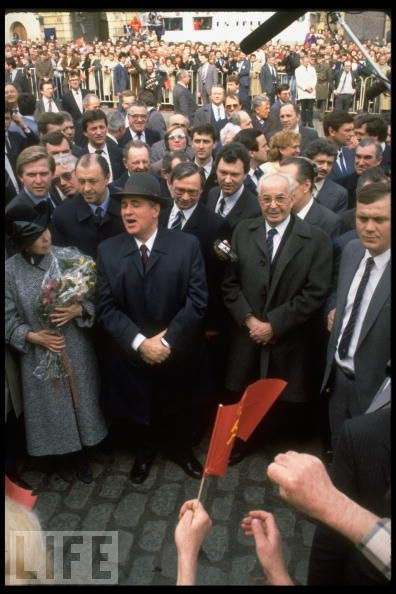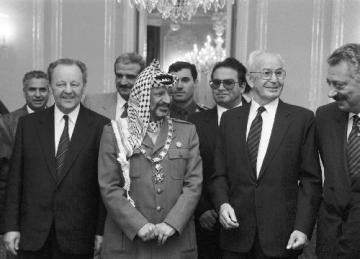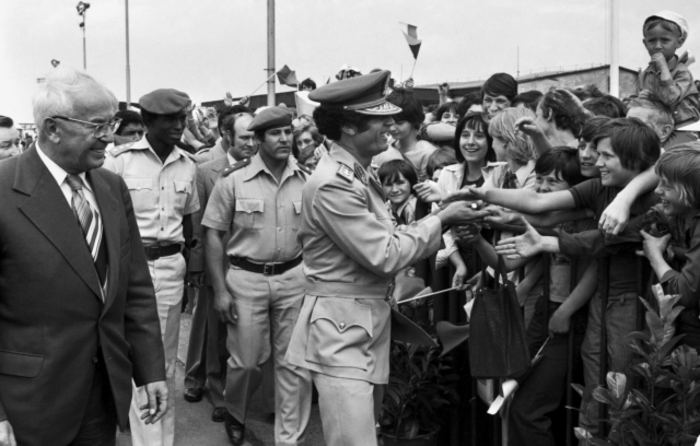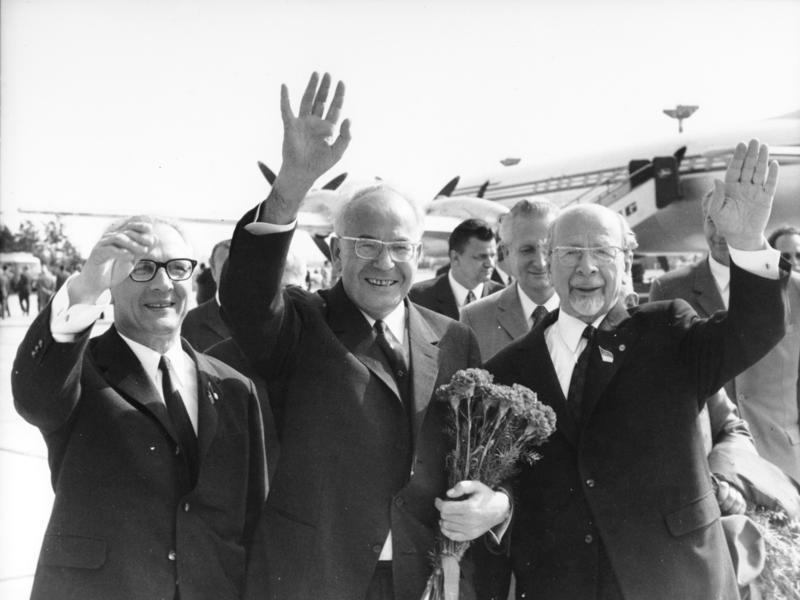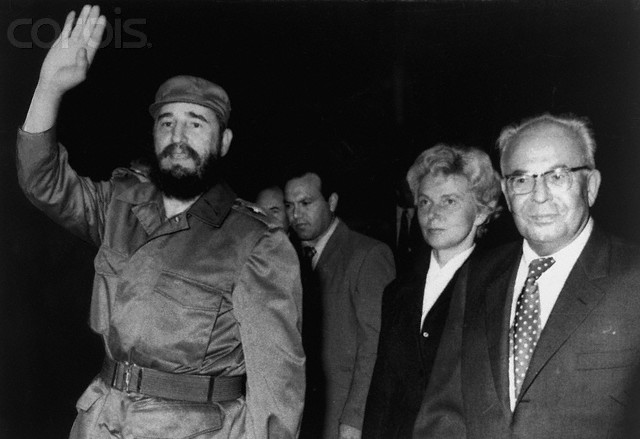<Back to Index>
- Astronomer Simon Marius, 1573
- Writer Annette Elizabeth von Droste-Hülshoff, 1797
- President of Czechoslovakia Gustáv Husák, 1913
PAGE SPONSOR
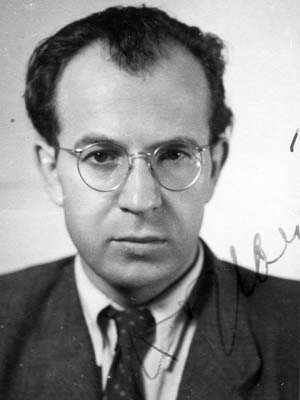
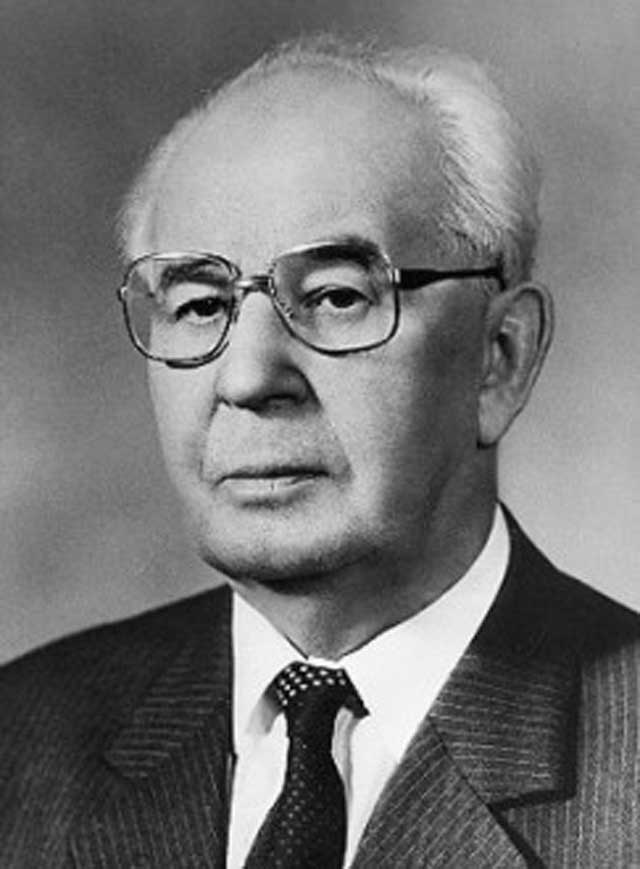
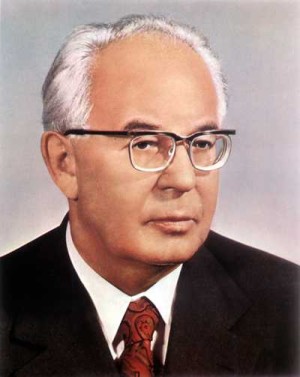
Gustáv Husák (10 January 1913 - 18 November 1991) was a Slovak politician, president of Czechoslovakia and a long term Communist leader of Czechoslovakia and of the Communist Party of Czechoslovakia (1969 - 1987). His rule is known as the period of Normalization after the Prague Spring.
Gustáv Husák was born as a son of an unemployed worker in Dúbravka (now part of Bratislava), Kingdom of Hungary, Austria - Hungary (now Slovakia). He joined the Communist Youth Union at the age of sixteen while studying at the grammar school in Bratislava. In 1933, when he started his studies at the Law Faculty of the Comenius University in Bratislava, he joined the Communist Party of Czechoslovakia (KSČ) which was banned from 1938 to 1945. During World War II he was periodically jailed by the Jozef Tiso government for illegal Communist activities, and he was one of the leaders of the 1944 Slovak National Uprising against Nazi Germany and Tiso. Husak was a member of the Presidium of the Slovak National Council from 1 September to 5 September 1944.
After the war he began a career as a government official in Slovakia and party functionary in Czechoslovakia. From 1946 – 1950 he acted as a quasi-Prime Minister of Slovakia, and as such he strongly contributed to the liquidation of the Democratic Party of Slovakia, which had won 62% in the 1946 elections in Slovakia, thus preventing the Communists from seizing power in Czechoslovakia.
In 1950 he fell victim to a Stalinist purge of the party leadership, and was sentenced for life, spending the years from 1954 to 1960 in the Leopoldov Prison.
A convinced Communist, he did not cease to view his imprisonment a
gross misunderstanding which he periodically stressed in several
appealing letters addressed to the party leadership. It is well known
that Antonín Novotný, the Czechoslovak president and first party secretary of that time,
repeatedly declined to grant Husák pardon by assuring his
comrades that "you do not know what he is capable of when coming to
power". The true reason for Novotný's stance, however, may be
ascribed to his personal politically motivated Slovakophobia as well.
Finally, as a result of the De-Stalinization period in Czechoslovakia, Husák's conviction was overturned and his party membership restored in 1963. By 1967 he attacked the KSČ's neo-Stalinist leadership, and he became a deputy premier of Czechoslovakia in April 1968, during the period of liberalization under party leader Alexander Dubček. As the Soviet Union grew increasingly alarmed by Dubček's liberal reforms in 1968 (Prague Spring),
Husák began calling for caution. After the Soviets invaded
Czechoslovakia in August and he participated in the Czechoslovak - Soviet
negotiations between the kidnapped Alexander Dubček and Leonid Brezhnev in Moscow, he suddenly became a leader of those party members calling for the reversal of Dubček's reforms. An account for his pragmatism was given in one of his official speeches in Slovakia after
the 1968 events, during which he ventured a rhetorical question, asking
where his opponents (i.e., supporters of opposition against the Soviet
Union) want to find those "friends" of Czechoslovakia (i.e., countries
in Europe) that would come to support the country (i.e., against Soviet
troops). Supported by Moscow, he was appointed leader of the Communist Party of Slovakia in as early as August 1968, and he succeeded Dubček as first secretary (title changed to general secretary in 1971) of the Communist Party of Czechoslovakia in
April 1969. He reversed Dubček's reforms and purged the party of its
liberal members in 1969 – 1971. In 1975, Husák was elected President of Czechoslovakia. During the two decades of Husák's leadership, Czechoslovakia became one of Moscow's most loyal allies. In
the first years following the invasion, Husák managed to appease
the outraged civil population by providing a relatively satisfactory
living standard and avoiding any overt reprisals like was the case in
the 1950s. While his regime was certainly less harsh than the first 20
years of Communist rule in the country, it wasn't a liberal one either.
The people's rights were somewhat more restricted than was the case in János Kádár's Hungary and Josip Broz Tito's Yugoslavia. Indeed, on the cultural level the level of repression was similar to that of Erich Honecker's East Germany and Nicolae Ceauşescu's Romania. Under the cover of everyday stability, there was a permanent campaign of repression by the secret police (StB) targeted at the outspoken dissidents represented later by Charter 77 as
well as hundreds of unknown individuals who happened to be objects of
StB's preventive strikes. The repression intensified over the years as
Husák grew more conservative. Starting
in the early 1970s, Husák allowed those who had been purged in
the aftermath of Prague Spring to rejoin the party. However, they were
required to publicly distance themselves from the "errors" they had
committed. The latter part of Husák's tenure saw a struggle within the Politburo over whether to adopt Gorbachev style reforms. While the hardliners, led by Vasil Bilak, opposed any restructuring, moderates led by Prime Minister Lubomir Strougal strongly
favoured reform. Husák himself stayed neutral until April 1987,
when he announced a somewhat half - hearted reform program starting in
1991. Later that year, however, Husák yielded his post as general secretary to Milouš Jakeš. This was in response to a desire for younger leaders (Jakeš and Ladislav Adamec) to share in power. Communist
rule collapsed in Czechoslovakia in late 1989. On 10 December, he was
forced to preside over the appointment of the country's first
non-Communist government in over 40 years. Soon afterward, he resigned
as president. In February 1990 he was expelled from the Communist
Party. He died almost forgotten on 18 November 1991. There
is still some question about Husák's moral responsibility for
the last two decades of Communist rule in Czechoslovakia. After its
collapse Husák kept saying that he was just trying to diminish
the aftermath of the Soviet invasion and had to constantly resist
pressure from hard line Party Stalinists such as Bilak, Alois Indra and
the like. It is true that in the early 1970s he personally pushed for
an early withdrawal of the Soviet troops from Czechoslovak territory,
which did not happen until 1991; this may be ascribed to his pragmatic
attempts to ease the situation and to give an impression that things
were leaning toward "normality". However,
there are many irrefutable facts, convicting him of a great deal of
personal contribution to the regime's nature. As the General Secretary
of the Party he was well able and willing to control the repressive
state apparatus. There are many documented cases of appeals from
politically persecuted persons, however almost none of them was given
Husák's attention. As the overall decay of Czechoslovak society
was becoming more and more obvious in the 1980s, Husák became a
politically impotent puppet of events. Gustáv Husák was
awarded the title Hero of the Soviet Union on 9 January 1983.
